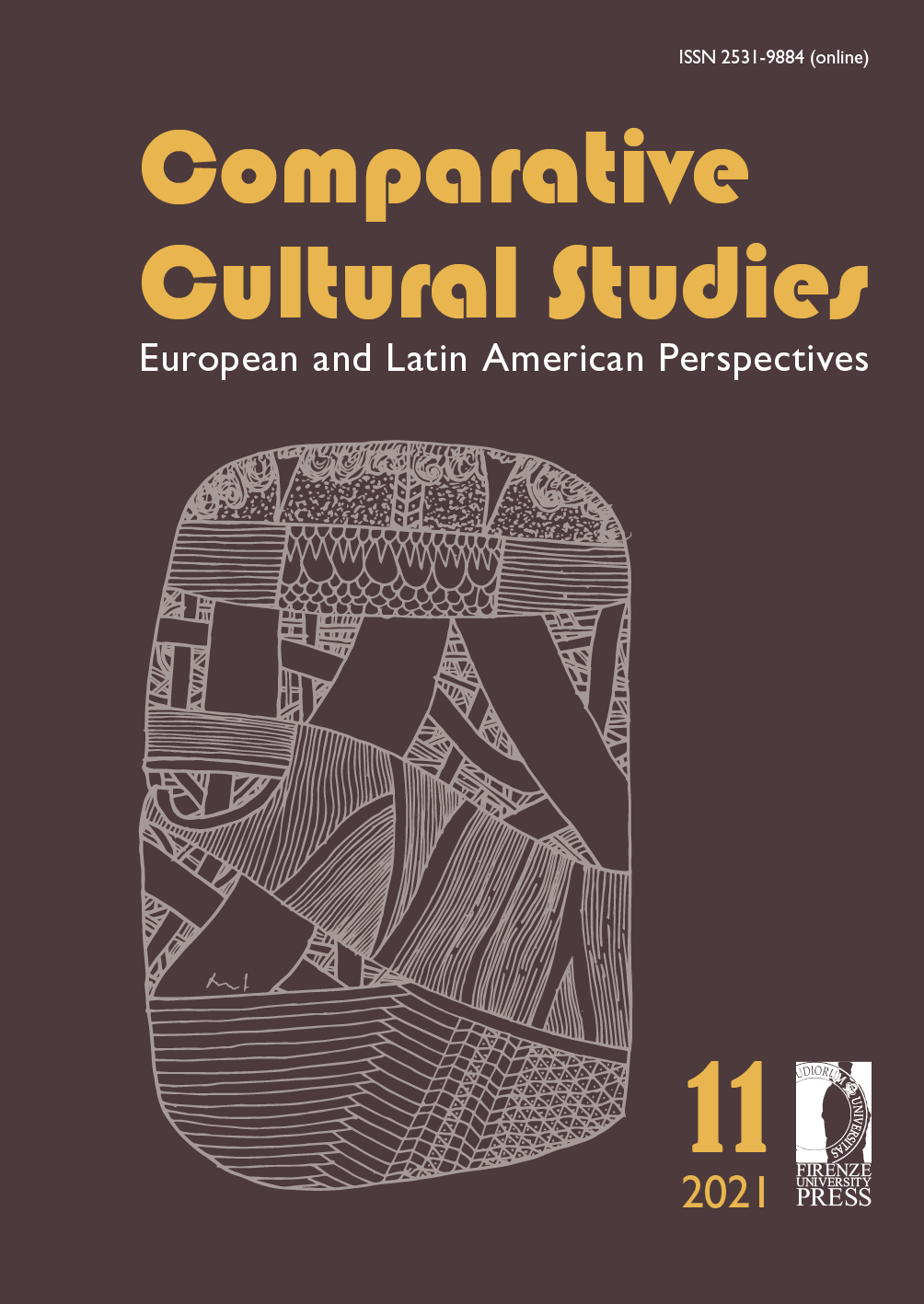Il mondo di ieri e la terra del futuro. Ricordando Stefan Zweig, europeo, cosmopolita, pacifista
DOI:
https://doi.org/10.13128/ccselap-12520Parole chiave:
Brazil, cosmopolitism, exile, hybridisationAbstract
The article reviews the life and work of Stefan Zweig, playwright, journalist, biographer, historian and poet, born in Vienna on November 28, 1881, who committed suicide on February 22, 1942 in Petropolis, Brazil. Raised in Vienna, a cosmopolitan metropolis, in a Jewish family, as cosmopolitan as the city, assimilated into the culture of the Habsburg Empire – «a great and mighty empire» and «a world of security», Zweig experienced the collapse of what he calls «yesterday’s world», the European society, preceding World War that was perhaps more globalized than it is today. Perhaps nothing gives a better idea of the abyss the world has fallen into since World War I, writes Zweig, than the limitation on freedom of movement. Before 1914, everyone went where they wanted and stayed there as long as they wanted. «The world of security and creative reason in which we were born, where we grew up and where we felt like our own” was shattered “into a thousand pieces like an empty clay pot» by the World War one, then by the crises of the Twenties and Thirties, then by totalitarianisms. Escaping Nazism, Zweig becomes an exiled, taking refuge first in England, then in Latin America, in Brazil. There he discovers the world of the future, in this mixed Brazil which seems to ignore the tension and violence around the question of race that is destroying Europe. The Brazil that Zweig describes in his latest work, Brazil, Land von Zukunft, may be idealised. However, the enhancement of hybridisation was so foreign to the European thought at the time that one can only be grateful to Zweig for carrying the theme. The fascination with “the land of the future” couldn’t, however, console Zweig for the end of yesterday’s world. The writer could not survive Europe’s “suicide”.
Downloads
Riferimenti bibliografici
Afrânio Raul Garcia G., Les souvenirs d’un Européen: entre Le Brésil, terre d’avenir et Le Monde d’hier. Les derniers écrits de Stefan Zweig, in Actes de la recherche en sciences sociales 2011/1-2 (n. 186-187), pp. 112-131.
Freyre Gilberto, Padroni e schiavi, Torino, Einaudi, 1965.
_______, Case e catapecchie. La decadenza del patriarcato rurale brasiliano e lo sviluppo della famiglia urbana, Torino, Einaudi, 1972.
Houellebecq Michel, Interventions 2020, Paris, Flammarion, 2020.
Illies Florian, L’anno prima della tempesta [1913], Milano, Marsilio, 2013.
Vanzulli Marco, “Niente sarà più come prima”. Sui giorni del coronavirus come “epoca”, in «Laboratorio dell’ISPF. Rivista elettronica di testi, saggi e strumenti», (XVII), 2020, pp. 1-10; Attualmente disponibile sul sito web: <https://boa.unimib.it/retrieve/hand-le/10281/274870/402365/Vanzulli.%20Epoca.pdf>, consultato il 20 novembre 2020.
Zweig Stefan, Brasile, terra del futuro, Milano, Elliot, 2013.
_______, Kleine Reise nach Brasilien, 1936; trad. Vittoria Schweizer, Simona Manetti Ignesti, (2017) Breve viaggio in Brasile, Firenze, Passigli, 2018.
_______, Die Welt von Gestern. Erinnerungen eines Europäers, 1944; trad. it. di Giorgi Pic-coni De Carlo, Il mondo di ieri: ricordi di un europeo, trad. Giorgio Picconi, Roma, De Carlo, 1945; trad. it. di Lavinia Mazzucchetti, Milano, Mondadori, 1946; trad. it. di Giuseppe Dolei, Catania, Edizioni del Prisma, 1995; trad. it. di Silvia Montis, Roma, Newton Compton, 2013; trad. it. di Lorena Paladino, Milano, Garzanti, 2014.<https://casastefanzweig.org.br>.
Downloads
Pubblicato
Come citare
Fascicolo
Sezione
Licenza
Copyright (c) 2021 Giovanna Campani

TQuesto lavoro è fornito con la licenza Creative Commons Attribuzione 4.0 Internazionale.
Questa licenza consente a terzi di condividere (copiare e ridistribuire il materiale in qualsiasi mezzo o formato) e adattare (remixare, trasformare e creare dal materiale per qualsiasi scopo, anche commerciale), a condizione che sia riconosciuta la paternità e la prima pubblicazione in questa rivista (La Rivista, DOI del lavoro), che sia fornito un link alla licenza e che sia indicato se sono state apportate modifiche al lavoro.







